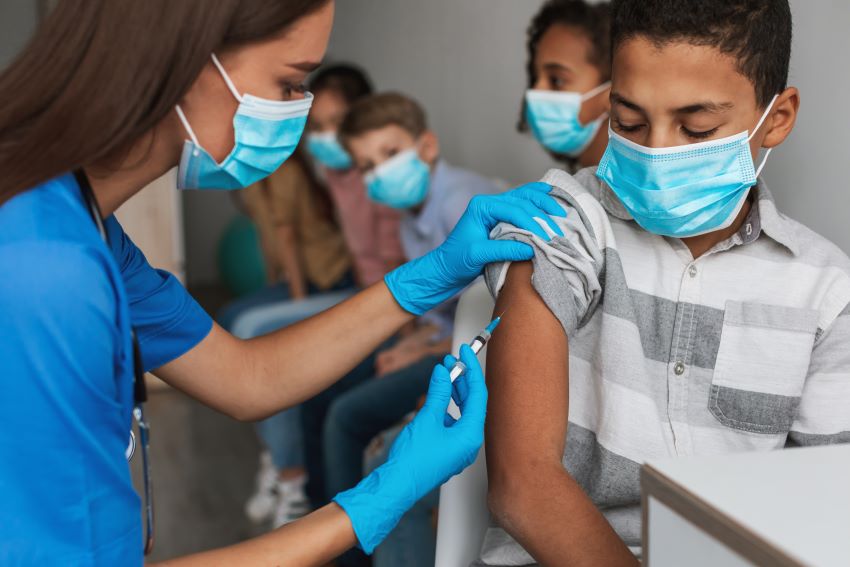
Barbados’ Expanded Programme on Immunization (EPI) saw a fall-off in the number of routine immunizations for children, including that of the MMR (measles, mumps and rubella) vaccine, as a result of the COVID-19 pandemic.
While this is a cause for concern, Senior Medical Officer in the Ministry of Health and Wellness and recent Pan American Health Organization (PAHO) Advisor on Immunization for the Caribbean Region, Dr. Karen Broome, believes proper surveillance and targeted campaigns can help the country find and vaccinate those children who have slipped through the cracks.
She was speaking last Friday, at an educational workshop for nurses and medical doctors, which was part of activities for the 20th Vaccination Week in the Americas.
“I am very, very concerned. All of the countries in the Caribbean, in the region should be very concerned. All of the organisations that deal with the health indicators and help countries with their programmes and activities are very concerned.
“The measles outbreaks are increasing [globally]. Barbados is a highly tourist dependent country. We have travellers from all over the world. If we import a case of measles, it is not like how it would have been in 2015 and 2016, when our coverage was high; our coverage now is low and we are vulnerable to an outbreak. So, we have to do all of the activities that are required to get our coverage back in the 90s, back over 95 per cent. So that if we do import a case of measles, rubella, diphtheria, or pertussis, we can find these cases quickly, and we can then ensure that we do not have any secondary spread or transmission,” Dr. Broome underscored.
She explained PAHO had observed that vaccination coverage in the Caribbean was falling and that immunization programmes were struggling. Dr. Broome suggested that governments prioritise these programmes by providing the resources necessary, financial and otherwise, “in order to get the work done”.
She told those attending the workshop that targeted campaigns were crucial, whether for primary vaccines, such as the MMR, or for vaccines like the human papillomavirus (HPV), or COVID-19 vaccines, to finding those who had defaulted and getting them immunized.
The Senior Medical Officer pointed out that surveillance was also paramount to the success of the Expanded Programme on Immunization in any country. “So, the recommended surveillance activities include the reporting of all rash and fever cases followed by a prompt investigation of these cases. And we know we need a specimen whether that be a blood specimen or a nasopharyngeal swab….
“We also have to re-sensitise our healthcare workers both at primary and secondary systems because they need to understand the importance of surveillance. We, in the EPI team, know the importance of surveillance. We know that if we don’t look for disease, we are not going to find it, but they do not. A lot of them do not have that background. So, we need to do some re-sensitisation of our primary care doctors, our doctors in Accident and Emergency and the paediatric wards,” she emphasised.
Dr. Broomes noted that Barbados fell short of its target of 25 per cent for primary vaccine coverage for the first quarter of 2022. She said the Polio 3 coverage was only about 18 per cent; MMR 1, 17 per cent, and MMR 2, 15 per cent.
Private doctors, she noted, accounted for 20 per cent of the children vaccinated on the island. She also recommended that public healthcare workers continue with the measures that worked in the past when the national EPI coverage was high, which included checking registers at polyclinics, or even going into institutions, such as day nurseries, to find children who needed to be vaccinated.
